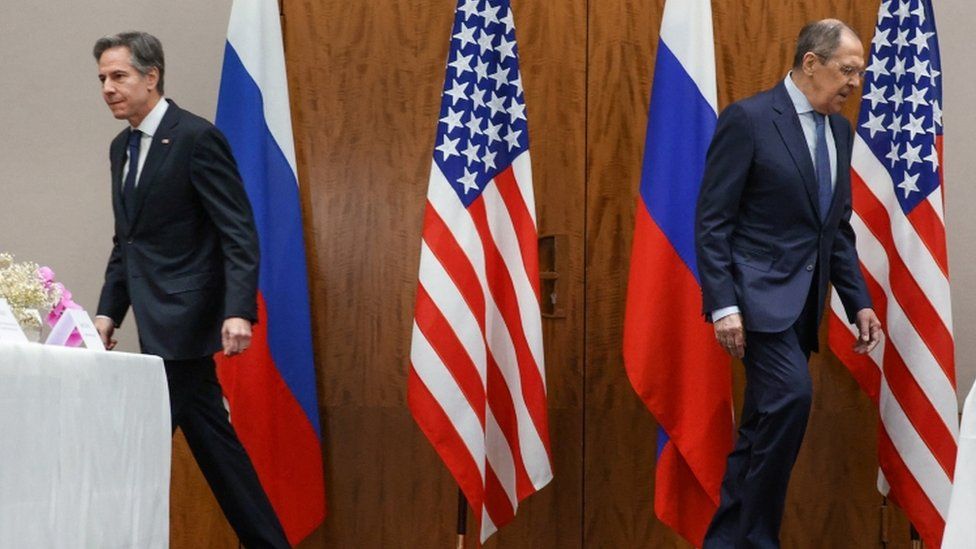
*Editor’s Note: On March 4, Russia enacted a law that criminalizes public opposition to, or independent news reporting about, the war in Ukraine. The law makes it a crime to call the war a “war” rather than a “special military operation” on social media or in a news article or broadcast. The law is understood to penalize any language that “discredits” Russia’s use of its military in Ukraine, calls for sanctions or protests Russia’s invasion of Ukraine. It punishes anyone found to spread “false information” about the invasion with up to 15 years in prison.
Dmitry Drize on the topic of the possible collapse of relations between the West and Russia
The U.S. would like to maintain a mutual diplomatic presence with Russia and leave communication lines open. Such was the answer of the United States Department of State to Moscow’s warning that diplomatic relations between the two countries are on the verge of collapse. Earlier, the Russian Ministry of Foreign Affairs said that further hostile actions would be unacceptable. In particular, they refer to the latest comments U.S. President Joe Biden made about his Russian colleague Vladimir Putin. Kommersant’s political columnist Dmitry Drize reminds us that a full Russian fallout with the Western world occurred back in 1917.
The United States Ambassador to Russia, John Sullivan, was summoned to the Russian Ministry of Foreign Affairs and handed a note of protest over recent comments President Joe Biden made about Putin, his Russian colleague. In the document, it is noted in particular that such statements put Russian-American relations on the verge of collapse. All hostile actions taken against Russia would receive a determined and harsh response.
Washington was also told that it has to provide proper functioning conditions for all Russian diplomatic missions in the U.S. In turn, Ambassador Sullivan demanded that the Russian government provide consular access to U.S. citizens detained in Russia. That same day, the Ministry of Foreign Affairs announced the termination of peace treaty talks with Tokyo. The reason — unfriendly sanctions.
How are these two events alike? The answer is that it’s our response to the Western world, and so it happens that this is the beginning of our official fallout with it. For now, it’s only talk, but in the near future, words may become action. Talking about Japan in terms of the Western world, by the way, is not a mistake — geographically, indeed, it is in the East, but ideologically it sides with the collective West. At least because it is a member of the Group of 7, a political agency of the Western world of sorts.
It has to be noted that our relationship with the U.S. has been bad for a while. As for Japan, however, our relationship could have been saved to a certain point, of course only in exchange for the distant prospect of Japan wresting the Kuril Islands away from Russia, sometime in another life. The Japanese, by the way, believed in this prospect until the very last moment and even offered us a chance to invest. But that’s history now.
Realistically, the main question is what a full relationship collapse with the Western world will entail. It’s incredibly difficult to answer, since there is only one historical precedent — back in 1917. Perhaps it will raise someone’s hopes, but, as history has shown us, this situation was short-lived. The West recognized the Soviets given the crisis it faced back then, etc., but we don’t have to recount those events here.
Judging by the statements from Russian officials, we expect the current course of events to go exactly the same way: the West will have no choice but to resume relations with us. One could argue that history might be repeating itself, but not completely. And maybe we should not be striving for the same kind of living conditions that existed in those days.

Leave a Reply
You must be logged in to post a comment.